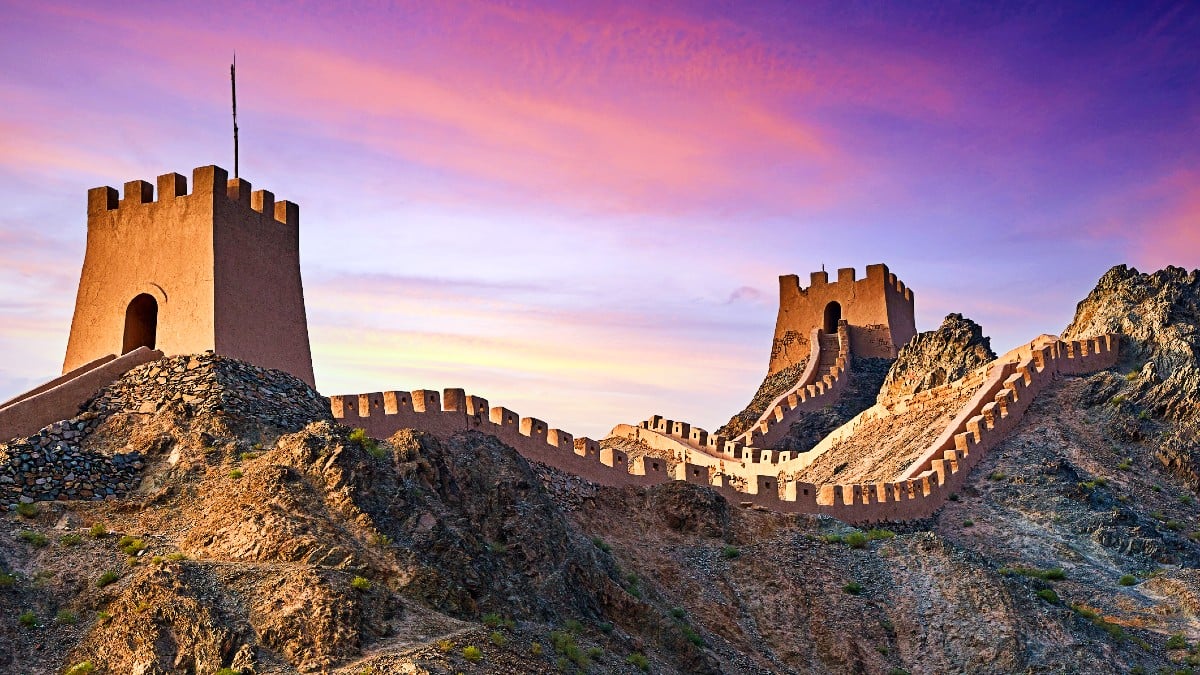ChinaTalks is Stockhead’s regular recap of the China facing stocks, sectors and trends that fund managers and analysts are looking at right now.
Today we hear from Van Eck portfolio manager Alice Shen.
Lot’s happening in China again…
Friday is the start of China’s week-long New Year holiday.
On Tuesday in Hong Kong the Hang Seng pretty much summed up the current utter confusion across Chinese markets – plunging an epic 374 points or 2.33% to end at an abysmal 15,703.45 just a day after one of its best sessions of the year.
Anticipation is mounting for more forceful Chinese government efforts and Chinese stocks extended their rebound after Bloomberg reported regulators, led by the China Securities Regulatory Commission, plan to update the top leadership on market conditions and the latest policy initiatives,.
If ever there was a time for movement at the station from regulators then a high-profile sit down with Chinese President Xi Jinping is it. They certainly can’t let the colt from Old Regret do a runner now. Now when the CSI 300 benchmark closed 3.5% higher – its best day since 2022.
Small-cap equities that have so far borne the brunt of the rout also jumped, with the CSI 1000 gauge up 7%, the most since 2008.
The imminent liquidation of debt-ridden property giant China Evergrande has scotched any potential shift in sentiment across Chinese markets following last week’s quasi-cunning capital markets rescue plan.
Stocks across mainland markets fell for a third day on Tuesday, despite a momentary Friday morning madness when stocks surged during a few hours of optimism over the signs of renewed action in Beijing.
Since then, the dormant demons of the troubled property sector have been reawakened, while investors can’t be blamed for looking down the road and seeing few reasons to be optimistic as domestic uncertainty, geopolitical risk and – last week – an ugly string of earnings disappointments from major US-listed Chinese companies.
It’s a legit crisis
However, Van Eck portfolio manager Alice Shen, told Stockhead Beijing’s incremental approach to supporting the wobbly economy and staving off any further slides for capital markets, looked like thinking at the top ‘turned a corner’ last week with the culmination of a string of measures which now include unlocking new sources of long-term liquidity, moving on market froth via caps on short-selling and the like; while lubricating lending for everyone from property developers to developing property investors.
“China is at an inflection point,” Alice told Stockhead.
And just lately it seems officials have begun to grasp the significance of the situation.
The wealth of China’s 220 million stock market investors now on the line, and sorting out the slump is no longer a question of mere financial stability – China’s social stability is in play.
And Xi won’t risk it. No true leader of the Chinese Communist party would.
The post-1949 Chinese social contract is simple: first it was control for stability. And then as living standards improved: control for economic opportunity. For the first time in a long time, the CCP is in danger of not holding up its end of the bargain.
Alice’s Year of the Dragon
“We think China could be at an inflection point where local authorities will need to engineer a new growth model to navigate the second-biggest economy in the world through its next stage of growth,” Shen says.
“With local authorities being pushed to take more forceful measures to stabilise the equity market and rebuild confidence, the new policies set to be released in the coming days are a promising first step to support the share market.
“A similar rescue package was effective during the 2015-2018 market downturn and could act as a catalyst for a market rebound.”
This happened in 2015 in 2018 and during COVID, she says.
Right now authorities’ gameplan is to mobilise a 2 trillion yuan fund to prop up comatose stock prices.
Most of the money will reportedly come from state-owned firms’ offshore accounts which will be available for purchasing A-shares via the Hong Kong Stock Connect.
Additionally, Beijing’s turned again to those reliable engines of liquidity – the China Securities Finance Corporation (CSFP) and Central Huijin Investment Corp – which will between them deploy circa 340bn yuan domestically.
Such state-intimate giants like the CSFP and Huijin (which is effectively a holding co for the government’s stakes in financial institutions, like Alibaba’s Ant Financial) are stalwarts of a state-backed super-dooper-fund club and are trotted out en masse as the situation requires to artificially inflate sodden stock markets.
Smells like blood
And markets are a mess. The MSCI China index is down 60% after three years of bleed.
“Given where valuations are, an allocation to China could be an opportunistic trade right now,” Alice says.
And a look at the recent flow of funds from short positions into longer bets suggests a change could be on the cards.
Herald van der Linde, head of equity strategy for Asia Pacific at HSBC, forecasts upside of between 30-40% for Chinese equity markets – if, and when – a sun of some sort pushes through the veil.
“Valuations are attractive,” Alice says.
“Both forward P/E and P/B are trading well below their 10-year averages. The opportunity looks even more attracting when compared to China’s neighbours. India and Japan have had a lot of hype over the past year, but forward P/E in these countries is almost 20x versus 10x in China.
Alice says that while China’s equity market has yet to turn around this year, what’s driving this weakness is less to do with company fundamentals… but rather a lack of confidence among both foreign as well as domestic investors.
“There are some necessary conditions for confidence recovery in the market, including property stabilisation, getting inflation back up, and local government debt resolution. Should the forthcoming policies be successful in addressing these issues, we may look back upon the start of 2024 as the optimal time to buy.”
“China continues to experience a rocky recovery post-COVID and the real estate related value chain continues to face headwinds which is unlikely to subside anytime soon but sectors such as commodities and energy are doing well.
Alice: Positives in the right places
“We are positive on the long-term growth trajectory of new energy/high-tech sectors, including the EV supply chain, solar, and semiconductors as they have already started contributing more to the country’s exports and GDP growth.
“Chinese healthcare is probably less talked about but some of the pharma and biotech companies have strong innovative drug pipelines and could also benefit from the overseas business expansion,” Shen says.
1. Destocking: Luxshare
First up Alice reckons there’s a few Chinese tech names which can benefit from the global tech inventory de-stocking unfolding this year.
“The launch of Apple Vision Pro in Q1 this year could bring tailwinds to the whole value chain, such as Luxshare, a Chinese firm which manufactures connectors in consumer electronics and automobiles.”
Alice says the No. 2 Apple supplier post-Foxconn, Luxshare, is taking over US$300 million worth of an iPhone plant in eastern China.
The Shenzhen-based manufacturer secured the 62.5% take in another rival, the Taiwan-based Pegatron’s operation in Kunshan last month. Analysts have suggested the acquisition will deliver a fairer fight for the pole iHelper position,.
Lux is positioning to better compete with Foxconn, Apple’s primary, but vulnerable partner in China.
Last month, Luxshare also clinched a deal with US chip company Qorvo to buy further operations this time ensuring an “increase (of) Luxshare’s capabilities and talent pool”, opening the door to more US customers, in addition to the major Android makers it already supplies.
“The company earnings may extend further with Apple-related orders that generate stronger economies of scale,” Alice says.
Decarbonisation: Jinko Solar
In terms of new energy, solar companies such as Jinko Solar may benefit from the continued push for decarbonisation in China. Jinko is also expanding overseas – it ranked the top in terms of exports of solar modules to India in 2023 as the country’s demand for clean energy increases.
According to Wood Mackenzie, the US energy storage industry installed 1,680 megawatts/5,597 megawatt-hours of storage systems in Q2 2023 alone, representing a 161% increase as the Inflation Reduction Act’s renewable storage incentives continue to take effect.
As companies race to meet the demand for renewable storage systems, the industry-leading solar panel and storage manufacturer Jinko Solar is uniquely equipped to meet consumer demand while taking pressure off the grid. As the first solar company to deploy 100 gigawatts of solar modules worldwide, Jinko Solar is in the first wave of innovative and sustainable local solution providers to the very big global energy concerns, with its state-of-the-art storage systems particularly sought after.
Demography; Jiangsu Hengrui
China’s demographic collapse is accelerating.
Births fell to a record low in China in 2023, speeding up its population decline. The potential economic drag prompted Chinese stocks to fall after the figures were announced on Wednesday, along with weak property data.
This shift has serious implications for the country’s economic status. It stymies a 2020 forecast that China would soon surpass the US as the world’s largest economy.
But it is not all bad news. Some sectors stand to benefit from Beijing’s new policies to cope with changing demographic trends.
The country’s population fell more than 2mn to 1.41bn last year, according to government data. The drop, which was more than double that of the previous year, results from both the lowest number of babies being born since the founding of the People’s Republic of China in 1949 and the highest death rate since 1974.
“Jiangsu Hengrui Pharmaceuticals is one of the largest Chinese pharmaceutical/biotech companies with a diversified portfolio of innovative drugs,” Alice says.
Also known as Jiangsu Hengrui, the company manufactures and distributes various types of drug packaging materials, cancer-treating antineoplastics, cardiovascular medication, painkillers, antibiotics, and related products.
“Three newly launched innovative drugs were added to the 2023 National Reimbursement Drug List which would drive near-term growth.”
Yet the sheer size of China’s elderly population — a fifth of the country’s population was 60 or older as of 2022 — should mean new growth sectors that should start to attract more funding.
Beijing last month seized the initiative with a plan to develop a “silver economy” that caters to senior citizens with tailored products and services, a market estimated to be worth trillions of dollars.
That push would provide a welcome boost for the biggest local biotech and pharma groups, including Jiangsu Hengrui.
Health-related consumption, ranging from medical devices to pharmaceuticals, would account for the biggest share of spending among the older age group.
The views, information, or opinions expressed in the interview in this article are solely those of the broker and do not represent the views of Stockhead.
Stockhead has not provided, endorsed or otherwise assumed responsibility for any financial product advice contained in this article.
The post ChinaTalks: Decarbonisation, Destocking and Demography are the top themes in this Year of the Dragon appeared first on Stockhead.























+ There are no comments
Add yours